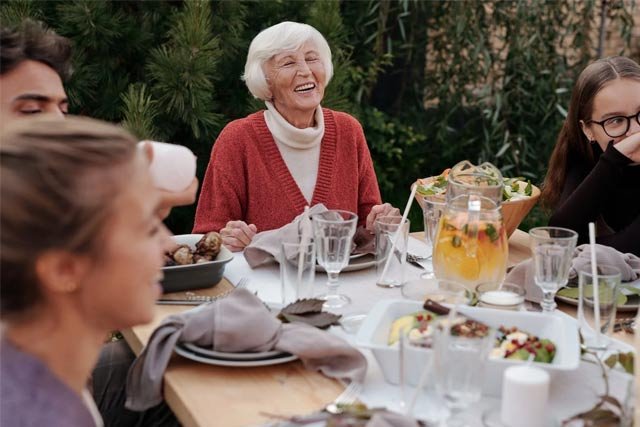Many older adults lead full and rich lives, but some have unmet care needs, especially when it comes to caring for the elderly. It’s important to understand what these needs are so that you can help them.
Some of these needs are social activities related to self-care and mobility. Other issues can be psychological.
1. Medical Care

One of the most common needs of the elderly is medical care. It includes:
- Health and wellness programs.
- Home healthcare services.
- Assisted living communities.
- Nursing homes.
- Long-term care facilities.
- Hospice care.
Elderly care can also be provided by friends, family, neighbors, or caregiving professionals.
Elderly people may need to take multiple prescriptions that must be taken regularly. Finding the best prescription drug plan that fits your budget and meets your needs is important. You can get help by scheduling free and confidential appointments with a NY Connects counselor.
In addition to medications, many seniors have chronic conditions that increase their need for health and wellness services. These conditions include hearing loss, vision impairment, back pain, arthritis, gastrointestinal issues, urinary incontinence, and dementia. These conditions are called geriatric syndromes and can be difficult to manage without proper care.
These diseases and conditions can increase the likelihood of falling, a common cause of injury among the elderly. A fall can result in serious injuries and can harm the elderly person’s well-being. Elderly adults must have a way to safely move about their homes and neighborhoods without worrying about getting injured. A fall can also lead to social isolation, which is bad for a senior’s emotional and physical health.
Nutrition and meal support is another need of the elderly. Seniors can struggle with food preparation and grocery shopping; some medications can affect appetites and cause them to skip meals. Many older adults suffer from malnutrition as a result. To avoid this, you can find several services that provide nutritious meals for the elderly. These services can range from specialized nutritionists to caregivers who cook for their patients.
Age-related diseases and disabilities are a natural part of aging, but they can be incredibly challenging and debilitating for the older adults affected by them. Caring for the elderly during this time is paramount in enhancing their overall quality of life.
2. Nutrition

While nutrition is vital for everyone, it becomes even more critical in old age. This is because an aged person’s body cannot take in or retain as many nutrients from food. It is also because certain diseases cause nutritional deficiencies that must be managed with proper diet and hydration.
For example, some health conditions like diabetes or high blood pressure increase the need for nutritious foods, especially when caring for elderly individuals. Similarly, if your loved one has arthritis or weak bones, they must consume calcium, Vitamin D, and protein-rich food. Vegetables, eggs, fish, and milk are some of the best sources of these nutrients. Moreover, the elderly should drink enough water to prevent dehydration.
Ensuring a well-balanced diet is crucial in caring for elderly loved ones. It involves consuming fruits, vegetables, whole grains, low-fat dairy, and protein-rich foods. A diet should also include sufficient fiber, vitamins, and minerals to prevent health issues like poor skin, bone, and immune system function. Neglecting proper nutrition harms the body and can accelerate cognitive decline and reduce mental sharpness in seniors.
Proper nutrition can help a senior’s brain stay healthy and active, and it can also boost their immune system and protect against infections. However, changing appetite is normal in older adults, who may prefer sugary or salty meals.
To avoid this, it is important to make your elderly loved ones eat various foods and snacks and encourage them to eat with family or friends. If your loved one has trouble chewing, it is a good idea to consider eating softer foods such as mashed potatoes, cooked vegetables, and canned fruit. It is also a good idea to talk to your doctor if your loved one has difficulty chewing because of an underlying condition.
3. Mobility

The need for mobility among older adults is a growing challenge as the population ages. This age group is more likely to live with a limiting long-term health condition than previous generations, and many will need support in their everyday lives to remain independent.
Immobility leads to social isolation and a reduced ability to complete tasks and can lead to depression. It also increases the risk of falls, fractures, and a greater need for medical care. For this reason, seniors need to maintain their mobility levels as much as possible.
Elderly people with mobility needs can benefit from regular exercise and help at home. You can start by discussing the exercises your loved one should engage in with their doctor and then creating a plan to keep them active and safe. You can also help them reduce fall risks by making their home safer. Installing a stairlift, for example, can make it easier for them to go up and down the stairs daily. For instance, installing a stairlift can significantly ease their daily movement up and down the stairs, demonstrating a genuine concern for their comfort and safety while caring for the elderly.
A common mistake many seniors make when they begin to experience mobility issues is to stop exercising altogether. This is because they may be afraid of falling or getting hurt. However, keeping up with physical activity can help them strengthen their muscles and increase their confidence. It can also prevent the onset of depression, a common problem for older adults.
Caregivers play a crucial role in supporting the mobility of elderly adults. They assist with daily tasks, transportation, and household chores, promoting independence and socialization. Collaboration among healthcare providers, engineers, planners, leisure service providers, families, and communities is essential to address mobility issues caused by injury, age-related decline, and movement disorders. By optimizing opportunities for healthy aging, unnecessary hospitalizations can be avoided, allowing seniors to live life to the fullest.
4. Socialization

A sense of community is a basic need for people to thrive, especially when navigating radical life changes and loss. Seniors need socialization because of their many challenges, including diminished quality of life, physical limitations, and loss of family and friends. Studies show that seniors who socialize more can better adapt and cope with these life transitions.
Loneliness can cause serious health issues, such as depression and mental decline. It can also affect cognitive functioning, leading to memory loss and dementia. Fortunately, this can be prevented through regular socialization with others. Seniors must try to socialize, whether alone or in a care facility.
In addition to the emotional benefits of a social network, seniors also benefit from a wide range of physical benefits. Regular peer interaction can help relieve pain caused by arthritis, joint problems, Parkinson, and other health conditions. It can also improve cardiovascular health by lowering blood pressure and cholesterol levels. Socialization can even extend a person’s lifespan, as it is associated with a lower risk of heart disease and stroke.
Seniors often lack the support they need to stay social due to transportation issues, isolation, and fear of exploitation. Home care services and assisted living facilities with social activities can help overcome these challenges. Finding activities tailored to seniors’ interests and abilities, such as hobby clubs or group exercise classes, is essential. Spending time with pets can also alleviate loneliness. A social circle promotes accountability for healthy habits and reduces anxiety and depression, preventing health issues.




